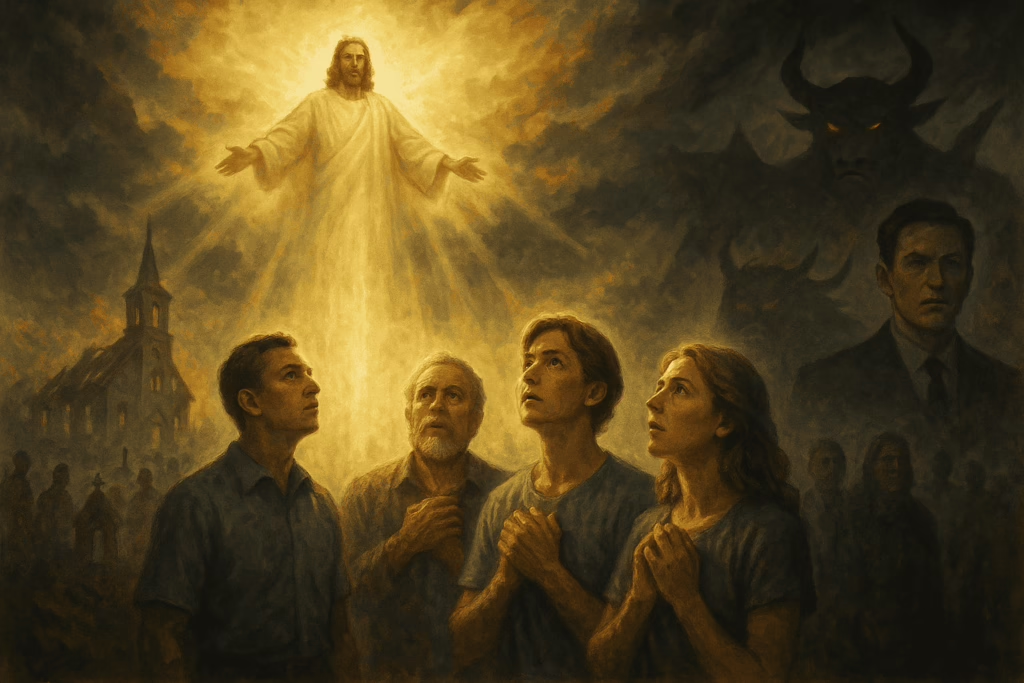Can the Rapture Really Happen at Any Moment?
The belief that the rapture could occur “at any moment” — known as the doctrine of imminence — is widely accepted in many modern Christian teachings. But is this belief actually supported by Scripture? In this article, we explore what the Bible truly says about the timing of the rapture, the events that must happen beforehand, and how believers are called to respond. Beyond tradition and denominational interpretation, we seek to understand whether the rapture is really imminent or whether Scripture presents a more structured prophetic sequence leading to this glorious event.
What Does “Imminence” Really Mean?
Many believers associate readiness with imminence. Verses like “you do not know the day or the hour” are often interpreted to mean the rapture could happen at any second. However, this statement emphasizes watchfulness, not unpredictability. In fact, Scripture presents multiple prophetic signs that must occur before the rapture. Being ready is essential, but it must be grounded in the full counsel of God’s Word.
Imminent Rapture Doctrine
Signs That Must Precede the Rapture
According to 2 Thessalonians 2:3, the apostle Paul clearly teaches that two major events must happen before the Day of the Lord:
A great falling away (apostasy), and
The revealing of the man of sin (the Antichrist).
These are not symbolic—they are real, prophetic events. Teaching that the rapture can occur at any time ignores this biblical order and confuses watchfulness with assumption.
End Times Signs
Misunderstood Verses About Imminence
Several verses are frequently cited to support the doctrine of imminence:
Matthew 24:44: “Be ready, for the Son of Man will come at an hour you do not expect.”
Philippians 3:20: “We eagerly wait for a Savior, the Lord Jesus Christ.”
Titus 2:13: “Looking for the blessed hope…”
These verses emphasize anticipation, but none of them say the rapture will happen without warning or outside of prophetic order. Readiness should not mean ignoring the revealed sequence of God’s plan.
Misinterpreted Rapture Verses
The Meaning of “Like a Thief in the Night”
In Revelation 16:15, Jesus says, “Behold, I come as a thief.” Many use this to argue for imminence. But Paul, in 1 Thessalonians 5:4, clarifies that this thief language only applies to those in darkness. Believers who walk in the light and stay watchful will not be surprised.
The thief metaphor is not about randomness—it’s about the need to stay spiritually alert, knowing that God has already revealed much of His prophetic calendar.
Thief in the Night Meaning
The Purpose of the Prophetic Sequence
The book of Revelation unfolds in a specific order: seals, trumpets, and bowls. The rapture is not disconnected from this divine sequence. Instead, it fits within God’s plan to separate, purify, and prepare His people. To skip these steps, as the doctrine of imminence suggests, undermines God’s prophetic framework.
God is not the author of confusion. His judgments and redemptive acts are intentional and sequential.
Prophetic Order and the Rapture
Why Preparation Still Matters
Rejecting the doctrine of imminence doesn’t mean becoming complacent. On the contrary, it means preparing with greater clarity and faithfulness. Believers are called to be watchful, to know the signs, and to understand the prophetic timeline. Our watchfulness should not be vague or fear-based, but rooted in Scripture and discernment.
Being prepared doesn’t mean guessing the day. It means living in holiness while awaiting a soon, but not sudden return.
Biblical Preparation
Recovering a Biblical View of the Rapture
The rapture is our blessed hope. But Scripture calls us not only to wait—it calls us to understand God’s timing with wisdom. The doctrine of imminence, as commonly taught, does not align with the prophetic sequence clearly revealed in the Bible.
We are not in darkness. We are children of the light. Therefore, we must watch wisely, test every teaching by the Word, and prepare our hearts—not for a random interruption, but for the orderly fulfillment of prophecy.
Discover more teachings on our channel:




